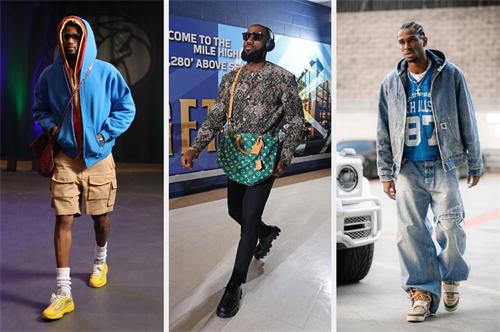The Dark Side of Influencer-Brand Collabs: Exploitation or Empowerment?

— The Case of Li Ziqi's Legal Battle
Behind the glamorous facade of the influencer world often lie hidden struggles and disputes. Brand collaborations bring not only fame and traffic but also battles for control and rights. The legal dispute involving Li Ziqi, one of China’s most renowned internet celebrities, offers a revealing glimpse into the realities of this industry.
Li Ziqi is among the most internationally influential Chinese content creators, boasting over 21 million subscribers on YouTube and more than 100 million followers across major Chinese platforms. Focusing on the richness of traditional Chinese heritage, her videos explore a wide range of themes—from classic culinary techniques and artisanal crafts to age-old seasonal traditions. Each story unfolds within the peaceful rhythm of rural life, capturing the charm and simplicity of the countryside through a uniquely artistic lens. One of her videos on ‘Shu embroidery’, for instance, garnered over 50 million views across Chinese platforms and millions more on YouTube.
The widespread appeal of Li Ziqi’s content lies in its high production quality, unique perspective, and deep cultural richness. She is known for her meticulous attention to detail, capturing visuals that are natural, heartfelt, and artistically refined. For example, in her food-related videos, the production process—from initial topic research to post-editing—often takes several weeks. Each shot is typically filmed 5 to 10 times, all to capture the most authentic and emotionally resonant moments.
Her videos serve not only as tools for cultural dissemination but also as a source of spiritual solace for modern viewers seeking an escape from urban chaos. The rural lifestyle she portrays through her lens draws audiences into a peaceful, long-lost world.
However, Li Ziqi’s creative journey has not been all poetry and beauty. In 2016, she partnered with Hangzhou Weinian Company to develop the “Li Ziqi IP.” In 2017, the two sides co-founded Sichuan Ziqi Cultural Communication Co., Ltd., with Weinian holding 51% of the shares and Li Ziqi 49%. As the brand’s influence skyrocketed, conflicts over commercial interests gradually emerged. By 2020, the “Li Ziqi” brand achieved an annual revenue of approximately 2 billion yuan (close to $300 million USD). However, because Weinian was the company’s controlling shareholder, Li Ziqi saw limited financial gains and gradually lost influence over her own brand.
Despite being the primary content creator, Li Ziqi undertook nearly all of the creative and production work herself, often enduring both physical and emotional strain. For instance, while learning lacquerware craftsmanship, she and her team experienced severe allergic reactions, even requiring allergy injections, yet continued to complete the project. Due to her high standards, she experienced emotional downturns two to three times per month, sometimes even breaking down in tears before intangible cultural heritage masters when her creations failed to meet expectations.
In July 2021, after releasing the video ‘Salt’, Li Ziqi suddenly ceased updating her channels. Soon after, a legal battle with Weinian began, lasting three years. She openly criticized the brand for mistreatment, igniting a broad conversation about the dynamics between influencers and multi-channel network (MCN) agencies.
Finally, on December 27, 2022, under the mediation of the Intermediate People’s Court of Mianyang, both parties reached a settlement. As part of the settlement, Li Ziqi successfully reclaimed a 99% stake in Sichuan Ziqi Cultural Communication Co., Ltd. In addition, Weinian’s founder Liu Tongming withdrew from the company, and ownership of related trademarks was formally returned to Li Ziqi’s business entity. This resolution not only restored her control over her brand but also laid a solid foundation for her return.
In November 2024, Li Ziqi officially returned to online platforms, marking her comeback after a long legal struggle. Her story highlights the challenges content creators may face in brand partnerships and underscores the structural tension between creative autonomy and capital control in today’s content economy.
Li Ziqi’s experience reminds us that while brand collaborations can empower influencers, they can also become tools of exploitation and suppression. Only with legal protections, transparent contracts, and industry-wide respect for creators’ rights can content creators realize their commercial potential without losing their voice or their freedom.
RECOMMEND FO YOU



